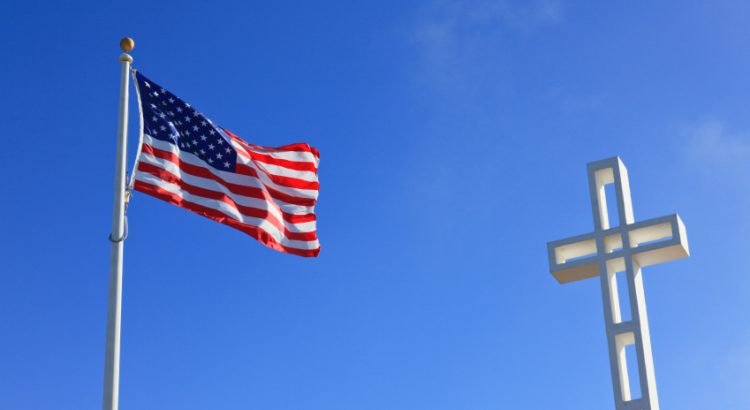The Supreme Court has invalidated a North Carolina statute making it a felony for a registered sex offender “to access a commercial social networking Web site where the sex offender knows that the site permits minor children to become members or to create or maintain personal Web pages.” Law professor Stuart Benjamin examines the First Amendment in a time of changing phenomena such as cyberspace.
Read More in The Washington PostCategory: Social Issues

Religious Liberals Want Back In Political Game
Liberal religious leaders who used to shun the political arena are getting involved to fight back against President Trump’s policies on immigration, health care, poverty and the environment. Imam Abdullah Antepli says he had hesitated to march alongside gay pastors until he realized their struggles were linked. “We can’t have only Jews cry for anti-Semitism, and Muslims cry for Islamophobia,” Imam Antepli says. “We can only win this if we see it as one big fight.”

What Herman Melville Can Teach Us About Trump Era
“I can think of no other American author who can so inform the perilous moment we are currently living. … The Confidence-Man” … was published 160 years ago, on April Fool’s Day, 1857, Melville could have been presciently forecasting today’s America when he imagined his country as a Mississippi steamer (ironically called the Fidèle) filled with ‘a flock of fools, under this captain of fools, in this ship of fools!’” writes Ariel Dorfman, English professor emeritus.
Read More in The Nation
What Will Kill Neoliberalism?
Suppose, indeed, that the age of capitalism is actually reaching its conclusion — but one that doesn’t involve the ascension of the working class. Suppose, instead, that we consider the existence of a third great social class vying with the other two for social dominance. …”
Read More in The Nation
Real Populism Was Very Different From Trump’s Pseudo-Populism Today
“For months, we’ve been told that Donald Trump’s election was a ‘populist revolt,’ working-class, alienated white Americans dissatisfied with the growing economic inequality rising up against a self-satisfied Establishment. There is some truth in this. But real populism — such as that in the 1880s and 1890s — was very different from Trump’s pseudo-populism,” writes historian emeritus William Chafe.
Read More in The Hill
Activists Try to Turn Anti-Trump Protests Toward Nine Companies
Liberal activists groups are hoping to turn the wave of anti-Trump outrage against nine corporations they say are enabling Trump’s agenda. “Whether we like it or not, everything is political now, including business,” says Aaron Chatterji, associate professor at The Fuqua School of Business. “We can leverage the way people interact with campaigns to the way they interact with companies.”
Read More in TIME
Trump Reverses Course on Iran Deal; Free Speech on Campuses
Sanford School professor David Schanzer and Scott Briggaman of WPTF/NCN News in Raleigh discuss the deepening political crisis in Venezuela and President Trump’s admission that the Iran deal is working. In light of another student protests of a right-wing speaker, Schanzer offers his insight on the state of the First Amendment on college campuses across America.
Listen at On Security
Opposing Immigration Wasn’t Always Racist
“Trump, no doubt, played to racial sentiments. But he also saw something his opponents didn’t: that even if Democrats refuse to acknowledge some of the complexities of immigration, many voters still see a need for limits,” writes Peter Skerry, a senior fellow at the Kenan Institute for Ethics.
Read More in The Boston Globe
NCAA: The Most Powerful Political Organization in The U.S.
“NCAA pressure was the game-changer with North Carolina’s bathroom bill. It appeared that the law would stay in place until the state’s basketball fans realized there would be no tournament games played here,” says anthropologist Orin Starn. “And so we witnessed the unlikely spectacle of the much-criticized billion-dollar sports leviathan at the forefront of defending LGBT rights.”
Read More in The Boston Globe
Being the Church in the Time of Trump
“Christians in America have played this game for so long now and with so many half-baked strategies that they can no longer differentiate between America and God, something Scripture calls idolatry. Once Christians zero in on the state as the locus of political activity, they become blind to those myriad other ways the church might politically act in the broad horizon of democratic possibility,” writes Stanley Hauerwas, professor emeritus at Duke Divinity School.
Read More at the Australian Broadcasting Corp.
NC ‘Compromise’ on HB2 and LGBT Discrimination
“Many activists working on the ground in North Carolina for HB2’s repeal see the compromise as a disgrace,” says Gabriel Rosenberg, a professor of gender, sexuality and feminist studies. “Gov. Cooper and the state Republican Party are horse-trading with the basic human rights of their constituents. … The compromise takes basic rights from LGBTQ citizens and gives them access to accommodations that never should have been denied in the first place. So it’s a give and take just like when a bully steals your wallet but lets you keep bus fare home.”



